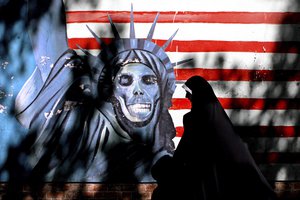Latest News for: mayberry r.f.d.
Edit
'Mayberry Man,' filmed in Indiana, re-opens this weekend, features Tippecanoe County actor
Journal & Courier 04 Nov 2021
Jeff Gossett, a long-time Hoosier, starred in "Mayberry Man," a fan-supported love letter to The Andy Griffith Show, mostly filmed in Indiana ... .
Edit
Mayberry Investments Limited (MIL) Declares Dividend (Revised) (Mayberry Investments Ltd)
Public Technologies 02 Nov 2021
Edit
Stocks Round Up | VM Investments, MPC Caribbean and Mayberry Investments today's top winners
The Gleaner 02 Nov 2021
The Jamaica Stock Exchange (JSE) Combined Index continued its weeks-long bear run on Tuesday, inching down on moderate trading, with an advance/decline ratio of 43/35. The JSE Combined Index declined by 372.62 points or 0.09 per cent to close at... .
Edit
Mayberry Investments Limited (MIL) Declares Dividend (Mayberry Investments Ltd)
Public Technologies 31 Oct 2021
Edit
 The Daily Jeff
30 Oct 2021
The Daily Jeff
30 Oct 2021
David Mayberry retires from Barnesville Dental Center
 The Daily Jeff
30 Oct 2021
The Daily Jeff
30 Oct 2021
David Mayberry will retire effective Nov ... Robert Brewer will continue to provide dental care at the Barnesville and Freeport Dental Centers and will accommodate Mayberry’s patients ... David Mayberry is an outstanding community citizen and a respected dentist,” said Jeff Britton, CEO of Ohio Hills Health Centers.
Edit
Mayberry Investments Limited (MIL) Unaudited Financial Statements for the Third Quarter Ended September 30, 2021 (Mayberry Investments Ltd)
Public Technologies 28 Oct 2021
Edit
Mayberry Jamaican Equities Limited (MJE) – Daily Net Asset Value (NAV) for October 12, 2021 (JSE - Jamaica Stock Exchange Ltd)
Public Technologies 27 Oct 2021
). The text version of this document is not available ... Disclaimer ... (noodl. 59243438) .
Edit
Mayberry Jamaican Equities Limited (MJE) – Daily Net Asset Value (NAV) for October 11, 2021 (JSE - Jamaica Stock Exchange Ltd)
Public Technologies 27 Oct 2021
). The text version of this document is not available ... Disclaimer ... (noodl. 59243437) .
Edit
Mayberry Jamaican Equities Limited (MJE) – Daily Net Asset Value (NAV) for October 15, 2021 (JSE - Jamaica Stock Exchange Ltd)
Public Technologies 27 Oct 2021
). The text version of this document is not available ... Disclaimer ... (noodl. 59243443) .
Edit
Mayberry Jamaican Equities Limited (MJE) – Daily Net Asset Value (NAV) for October 13, 2021 (JSE - Jamaica Stock Exchange Ltd)
Public Technologies 27 Oct 2021
). The text version of this document is not available ... Disclaimer ... (noodl. 59243439) .
Edit
Mayberry Jamaican Equities Limited (MJE) – Daily Net Asset Value (NAV) for October 14, 2021 (JSE - Jamaica Stock Exchange Ltd)
Public Technologies 27 Oct 2021
). The text version of this document is not available ... Disclaimer ... (noodl. 59243440) .
Edit
Mayberry Jamaican Equities Limited (MJE) – Daily Net Asset Value (NAV) for October 8, 2021 (JSE - Jamaica Stock Exchange Ltd)
Public Technologies 27 Oct 2021
). The text version of this document is not available ... Disclaimer ... (noodl. 59243435) .
Edit
 Advertiser-Gleam
27 Oct 2021
Advertiser-Gleam
27 Oct 2021
Breast Cancer Awareness - DAR creativity keeps on going
 Advertiser-Gleam
27 Oct 2021
Advertiser-Gleam
27 Oct 2021
This is the ninth year for “Save the Tatas,” the DAR High School art show that involves decorating bras to bring about breast cancer awareness ... .
Edit
 Statesville Record & Landmark
24 Oct 2021
Statesville Record & Landmark
24 Oct 2021
Thelma Lou reunites with most of Mayberry cast
 Statesville Record & Landmark
24 Oct 2021
Statesville Record & Landmark
24 Oct 2021
In my mind, our town of Harmony was what I imagined Mayberry to be most like ... Say “Mount Airy” really fast four or five times and it truly does begin to sound like “Mayberry.”. Mayberry was such a likable place that some out-of-state people thought it was a real Tar Heel town ... Could it be that they were seeking a real place like Mayberry?.
- 1
- 2
- Next page »



















